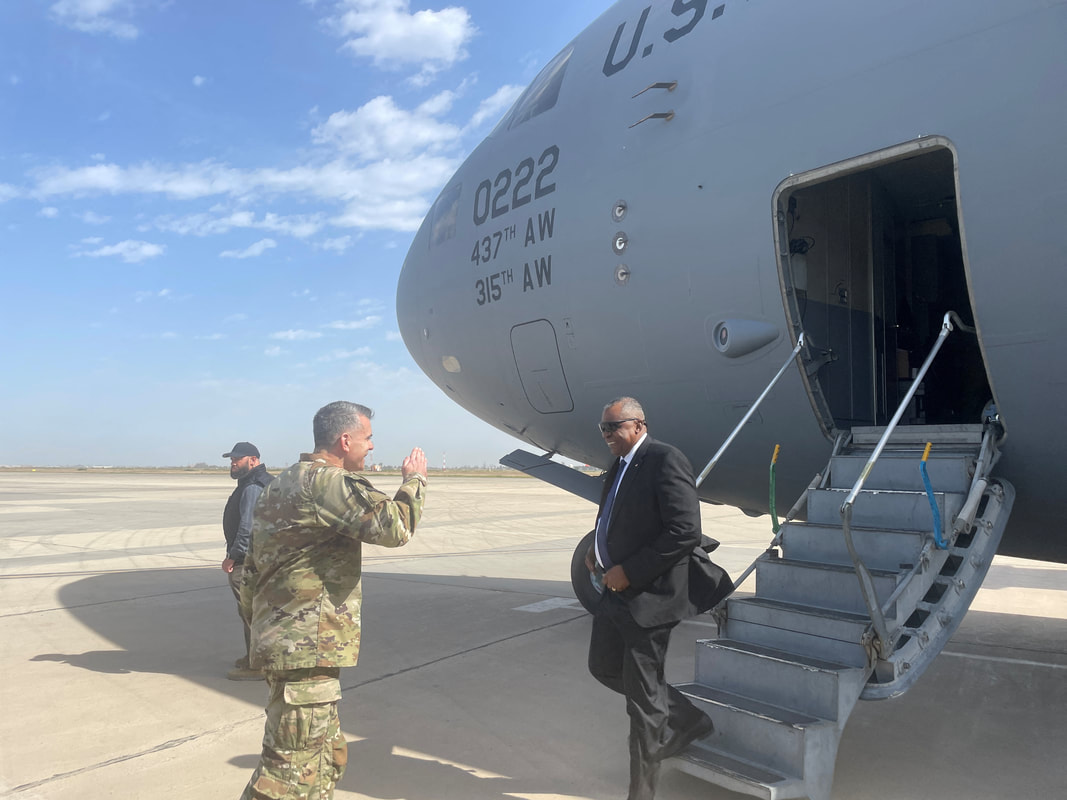The 2003 invasion led to the deaths of tens of thousands of Iraqi civilians and created instability that eventually paved the way for the rise of Islamic State militants after the U.S. withdrew its forces in 2011.
"The United States will continue to strengthen and broaden our partnership in support of Iraqi security, stability, and sovereignty," he said.
The United States currently has 2,500 troops in Iraq - and an additional 900 in Syria - to help advise and assist local troops in combating Islamic State, who in 2014 seized swathes of territory in both countries.
SYMBOLISM
Austin's trip is also about supporting Sudani's push back against Iranian influence in the country, former officials and experts said.
"I think that Iraqi leaders share our interest in Iraq not becoming a playground for conflict between the United States and Iran," a senior U.S. defense official, speaking on condition of anonymity, said.
Austin met Sudani and president of the Iraqi Kurdistan Region, Nechirvan Barzani, amid a long-running dispute over budget transfers and oil revenue sharing between the national government and Erbil, as well as the lingering acrimony between the two main Kurdish parties running the semi-autonomous region of Kurdistan.
"Erbil and Baghdad must work together for the good of all Iraqis and Kurdish leaders must put aside their divisions and come together to build a secure and prosperous Iraqi Kurdish region," Austin said following his meeting with Barzani.
Austin also condemned Iran's "repeated cross border attacks," on Iraq.
Last year, Tehran fired missiles at bases of Kurdish groups in northern Iraq it accuses of involvement in protests against its restrictions on women, displacing hundreds of Iranian Kurds and killing some.
Former President George W. Bush’s administration cited its belief that Iraqi leader Saddam Hussein’s government held weapons of mass destruction to justify the decision to invade Iraq. U.S. and allied forces later found that such stockpiles did not exist.
Between 185,000 and 208,000 Iraqi civilians were killed in the war, according to the Costs of War Project by the Watson Institute for International Studies at Brown University.
Austin, a former head of all U.S. forces in the Middle East, said in 2011 that the United States had achieved its military objectives in Iraq.
But under former President Barack Obama, the United States sent thousands of troops back into Iraq and Syria three years later to bolster the fight against Islamic


 RSS Feed
RSS Feed